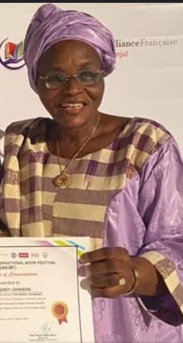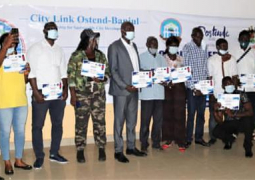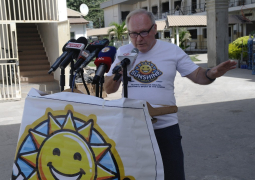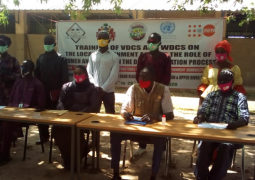
Her poetry explores essential themes related to the treatment of African women and the exploitation of the continent by the West.
Jabang skillfully utilises powerful and evocative language to address vital issues such as female genital mutilation, rape, widowhood, divorce, and neocolonialism, shedding light on the profound challenges confronting African women.
Her literary contributions are highly celebrated, though her depiction of African men has elicited a range of responses.
Yet, Jabang's bold voice consistently captivates audiences and stimulates important conversations.
Juka Jabang's literary odyssey commenced in the 1970s while she was a student at Fourah Bay College, part of the University of Sierra Leone.
Despite a distinguished career at the African Development Bank in Tunis, she continued to write relentlessly.
Her two poetry anthologies, The Repeal and Other Poems (2007) and The Phoenix (2012), showcase her evolving reflections on gender, societal norms, and the African condition.
For Jabang, poetry serves as a formidable tool to confront oppressive traditions and champion the cause of gender equality.
She finds inspiration in renowned literary figures from around the world, including Maya Angelou and Emily Dickinson, as well as groundbreaking Gambian women like Lady Augusta Jawara and Janet Young.
Jabang emphasises that female writers hold a moral obligation to identify and voice their opinions on issues that impact women.
In her poem "Exodus," she poignantly captures the mass migration of African youth and the heartbreaking phenomenon known as the "back way" syndrome. This powerful commentary serves as a stark reminder of the continent's ongoing battles with poverty and the scarcity of opportunities.
Her poetry powerfully critiques corruption, neo-colonialism, and the ongoing cycle of exploitation that continues to afflict Africa.
Despite Jabang's success and fulfillment in her literary career, she expresses deep regret over the dwindling influence of platforms such as Ndanaan, which once served as a vital creative haven for Gambian writers and fostered local talent.
She urges organisations such as the Writers Association of The Gambia to revitalise initiatives that pay tribute to influential figures like Dr. Lenrie Peters, a co-founder of the platform and a trailblazer in Gambian literature.
Jabang's poetic style highlights the remarkable power of language to communicate deep meanings succinctly. By employing vivid imagery and rich figurative language, she enchants her readers, creating lasting impressions that resonate long after the final word.
Jabang’s exploration of gender inequality and societal injustice solidifies her work as a vital contribution to both Gambian and African literary heritage.




